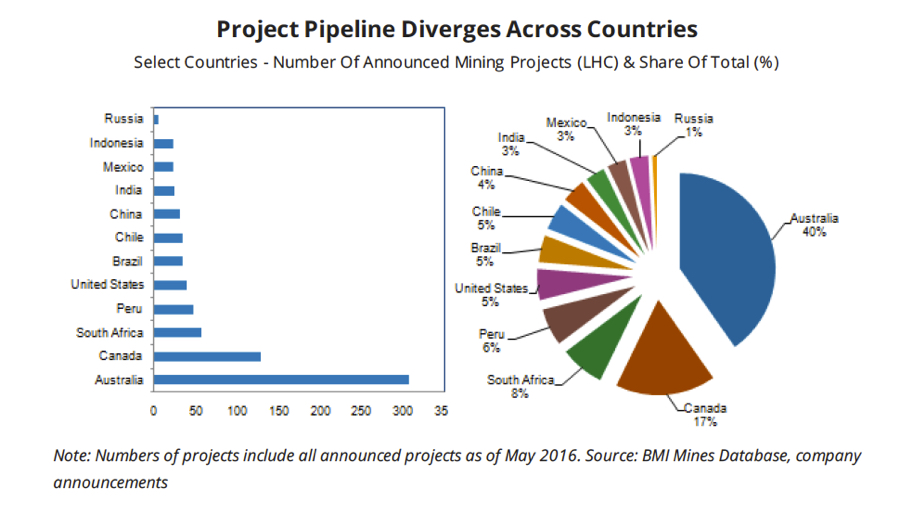Australia's mining project pipeline dwarfs other countries
A new report by BMI Research forecasts the global mining project pipeline will continue to narrow in 2016 and 2017 as low metals and mineral prices force miners into further cost cuts and lower capital spending.
However, a handful of countries are set to continue to make significant investment into both brownfield and greenfield projects, bolstered by a combination of low production costs, high-grade reserves and favourable regulations says BMI.
None more so than Australia, where significant initial capex projects nearly outnumber the next ten countries on the list.
BMI warns however that a majority of the projects in the pipeline are in the announced/feasibility study stage, and a proportion are not be expected to come to fruition over the research forecast period of 2016-2020.
BMI believes tin, nickel and bauxite will emerge as the sector's production growth bright spots through 2020 with a number of key projects coming online over the next few years.
BMI highlights a number of projects including Metals X's continuing expansion through brownfield investment and its reported new high-grade reserves at its Renison Bell mine, the largest tin mine in Australia. Other high-grade tin mine expansions include Stellar Resources' Heemskirk project, which boasts an estimated 4 .4 million tonne reserve.
BMI expects MMG's $1.4 billion Dugald River mine to lead a lead production revival over the coming years as zinc mine closures drag down lead output. Rio Tinto's $2.6 billion expansion of the massive Weipa bauxite mine is due to kick off early next year with production in the first half of 2019.
While gold and coal output growth will slow markedly says BMI, the country's copper sector will be buoyed by projects such as BHP's expansion at Olympic Dam and Sandfire Resources' DeGrussa copper mine, which will produce 300,000 tonne per year at full capacity.


Source: Business Monitor International